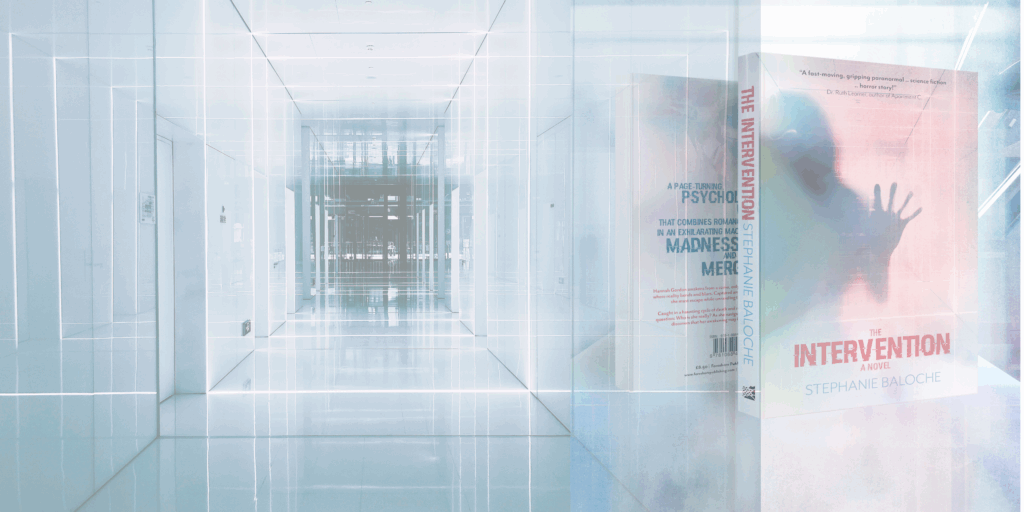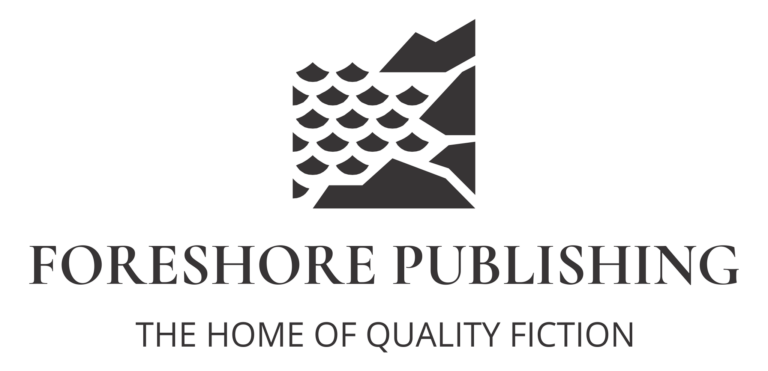
As Springtime in the Bones prepares for its English debut, it offers readers a rare and resonant journey—a tale of trauma and tenacity, heartbreak and humour, told with an uncompromising poetic voice. It is a testament to the healing power of storytelling and the indispensable value of bringing diverse voices into the global literary conversation. At the heart of Springtime in the Bones is Luísa—a successful publicist navigating the aftermath of two earthshaking events: a violent rape and a painful divorce. Állex Leilla’s narrative courageously explores this woman’s deeply personal journey of anger, heartbreak, and ultimately, renewal. Speaking about her novel, Leilla describes it as “a novel at once poetic and painful, because it shows a woman rebuilding after suffering a rape, and, shortly before this assault, going through an equally difficult divorce. Luísa has a very peculiar sense of humour, loves literature, rock, and film. The story revolves around her quest for revenge and rediscovery—the metaphor of spring renewing everything that winter froze perfectly fits her transformation.” Though the novel was first published as Primavera nos ossos in Brazil in 2010, its themes remain urgently relevant. Leilla reflects with both hope and sorrow: “It’s been 15 years, but the rates of sexual violence in Brazil remain high, especially in the big cities. Rape is one of the most abject forms of violence anyone can suffer. I hope the translation brings renewed attention to this important issue as well as the novel’s other layers.” For Leilla, the English translation is also a portal back to a pivotal time in her life and writing. “Surprisingly, I feel very connected to Primavera nos ossos today because I’m preparing my diaries from the period when I wrote it. These diaries bring old memories and insights to light, allowing me to revisit the emotions and context that shaped the novel’s creation.” Readers can expect more than a raw story: “They will encounter an authentic and complex adventure. I wanted to combine action—sometimes violent—with moments of poetry and humour, keeping paragraphs short and dialogue dynamic to make the story flow energetically.” Amanda Sarasien’s path to translating Springtime in the Bones began in 2020 when Leilla’s Brazilian publisher Casarão do Verbo sent her the manuscript. “I’m always drawn to literature from Bahia, a region rich in culture but underrepresented in translation. The book’s premise—a rape survivor plotting revenge in a noirish tale of impossible love—immediately drew me in. But it was Leilla’s voice, the musicality of the prose, and her playful, subversive manipulation of language that truly captivated me. This is an author who reveres language, both its power and limitations.” The translation process was a marathon of dedication and creativity. Sarasien explains: “It took about four years, juggling this with other projects. I usually read a book once before starting to translate, but with this novel’s cyclical, fragmented narrative and recurring themes, I re-read it many times. The narrative isn’t chronological—it loops like the seasons—so I often had to jump around in the manuscript to maintain consistency and grasp the full arc.” She adopted a strategic approach: “I translated the dialogue first to give the characters their voices in English. Dialogue is tricky to render authentically, so it was important to get that right from the start. Then, I tackled each chapter with multiple drafts, refining and revising. Sometimes, I spent an entire day on one paragraph to capture all the layers, images, and double meanings.” Extensive research and frequent discussions with Leilla helped Sarasien navigate the literary and pop-culture references peppered through the text. “Our collaboration was rewarding. Állex was always available, generously answering my questions without looking over my shoulder, and our correspondence became a rich exchange of insights—not only about the book but about literature and life.” For both Leilla and Sarasien, translated literature is a bridge connecting people beyond borders. Leilla highlights the broader cultural significance: “Literary translation is crucial for cultural exchange. It dissolves geographic boundaries of time and space, bringing people closer. We gain an intimate understanding of diverse cultures—both their unique features and universal human truths.” Sarasien points out the riches to be discovered in translated literature: “Anglophone publishing continues to produce only about 3% work in translation. In contrast, readers in many other languages engage extensively with fiction from around the world, so their literatures are in constant dialogue with ours. Translation into English makes that literary conversation a little less one-sided, infusing new voices, perspectives and narrative experiments into the canon. It’s thrilling and essential.” Beyond this project, both have rich literary backgrounds that shape their work. Leilla’s inspirations include classics like The Magic Mountain by Thomas Mann, which she admires for encapsulating twentieth-century history, The 25th Hour by Constantin Virgil Gheorghiu for its deep psychological insight, and Brazilian author Caio Fernando Abreu who showed her how to write poetically in prose. Sarasien’s literary path started early with a passion for languages—Spanish, French, Portuguese, and Mandarin—and a love of reading and writing. A late-career shift brought her into literary translation after an acquired disability. Her translating career took over a decade to fruition, marked by persistence and community support. She recommends aspiring translators to: “Read widely in all their languages, stay current with publishing trends, understand the markets in both source and target languages, and find a supportive community. Translation is a long road but deeply rewarding.” Her personal literary inspirations include Don Quixote studied in original 17th-century Spanish, which taught her about novelistic form; Jane Eyre for its layered themes and gothic atmosphere; and Ali Smith’s How to Be Both, admired for its linguistic playfulness and innovation. Foreshore Books, the small press imprint of Foreshore Publishing, will publish Springtime in the Bones in March 2026. AMANDA SARASIEN is a writer and literary translator working from Portuguese and French. A recipient of a 2022 National Endowment for the Arts Translation Fellowship, her work has appeared in Electric Literature, The Common, Chicago Review of Books, and elsewhere. She is a founding member of the Third Coast

Finding Belonging and Embracing Neurodiversity: The Heartfelt Journey of Kate McElderry’s New Novel Declan Someone (The Journey of Declan Noone). Kate McElderry’s highly anticipated debut – a coming-of-age story steeped in Celtic lore that follows a young man’s mystical journey in Ireland as he seeks roots, self-worth, and transformation – is a deeply personal and resonant story inspired by lived experience, decades of teaching, and a profound connection to place and identity. At its core, the book explores universal themes of belonging, kindness, and the complexities of navigating the world with neurodiversity. The spark for Declan Someone (The Journey of Declan Noone) came from a very real moment in an Irish pub that left a lasting impression on McElderry. She recalls: “I was locked out of a friend’s house one rainy Sunday night, feeling lost and anxious about a professional talk I had to prepare for the next day. When I walked into that pub, everyone turned to see me in my sorry, bedraggled state. But then, they just took me in. They bought me a meal, a pint, and encouraged me to practice my talk with them right there and then.” She continues, “One person said, ‘You belong here.’ That moment really touched and warmed me. I wanted to capture that spirit of shared humanity and kindness in Declan —how strangers can become mentors, friends, a kind of family on one’s journey.” Drawing on nearly three decades of teaching teens with ADHD, dyslexia, and anxiety, McElderry created Declan as a character navigating the complexities of the contemporary world while living with neurodiversity. “Declan has been living inside me for a long time,” she says. “It’s a mix of my old teenage writing and new work. I even found journals and stories my mother had saved, which inspired me to turn these pieces into something meaningful.” What stands out from the earliest chapters is the vividness of Declan’s voice and setting. McElderry describes, “I could literally imagine Declan wilting in the heat of New York. His voice was there from the start, and U2’s song ‘New York’ played in my mind as I wrote about those hot summers.” Her affection for Ireland also informs the novel deeply. “Ireland, especially the Wild Atlantic Way, feels like a spiritual home to me,” McElderry explains. “My stints there taught me to reframe loss and adversity and find joy and community. The culture and literature of Ireland are woven through Declan’s story.” McElderry’s personal experiences shape the narrative. She describes her younger self: “If I had to sum up my childhood self with book characters, I’d say I was a cross between Scout Finch from To Kill a Mockingbird and Anne of Anne of Green Gables. Like Anne, I was a free spirit with a big imagination, and like Scout, I was a tomboy who questioned injustices.” She also shares, “I’m neurodiverse myself, living with dyscalculia and synesthesia. Great teachers helped me overcome the anxiety I had around math, and that personal journey gave me insight into Declan’s world.” Writing remains central to McElderry’s life. “I started writing as a teen, creatively and as therapy, and also as an activist—pleading with politicians to save our planet,” she says with a laugh. Though those letters went unread, her passion for writing deepened. “I’ve worked mostly in educational and technical writing, but fiction always called me back. Despite the differences, all writing involves crafting ideas and connecting with readers.” An avid reader herself, McElderry believes reading fuels writing. “I’m a big believer in read-alouds for any age because humans are wired for storytelling,” she explains. She’s recently enjoyed books like Cloe Dalton’s Raising Hare and Phil M Shirley’s The Happening of Magic, and is currently absorbed in David Thomson’s The People of the Sea, which explores British and Irish selkie and merfolk legends, underscoring her love of folklore and myth. At its heart, Declan Someone (The Journey of Declan Noone) is a story about finding one’s place in the world and the unexpected communities that support us along the way. McElderry invites readers to journey with Declan and “rediscover what it means to belong—not just to a place or people but to oneself.” Declan Someone (The Journey of Declan Noone) is scheduled for release in spring 2026 under our imprint Foreshore Books. ABOUT THE AUTHOR Kate McElderry is passionate about storytelling, art, nature, and their confluence. She finds rocky coasts, tidepools, and the stories that both sides of the Atlantic hold, inspiring. Kate is neurodiverse and as a child was diagnosed with a learning difference. (Neurodivergent thinkers are often associated with ‘out of the box thinking,’ though due to her artist mother and creative teachers, Kate was never presented with a box nor put in a box. Instead, she was provided time, space, and opportunities to explore and create.) From her personal experience and career teaching students with dyslexia and ADHD, Kate is poised to write, speak, and educate about neurodiversity. She is the Director of Outreach and an educator at The Odyssey School in Baltimore County, Maryland. A published author, Kate, has written educational material, but Declan Someone (The Journey of Declan Noone) is her first novel. It weaves in writing from her teen years (a story and an essay) found in her mother’s attic with contemporary writing completed in Ireland. From afar, Kate is a member of the Irish Writers Centre, and other writing associations. When she is not teaching, speaking, or writing, Kate enjoys spending time with her family.

Dive into an excerpt from The Intervention, a captivating blend of paranormal mystery, science fiction, and psychological horror by Stephanie A. Morosan. Inspired by a vivid dream years ago—one that the author felt compelled to bring to life beyond her imagination—this novel weaves together fragments of real conversations, personal experiences, and everyday moments into a richly layered narrative. Like a ‘blind’ puzzle, these pieces come together to create a mysterious world straddling dream and reality. Morosan’s story explores themes of loss, consciousness, and the fluid boundaries between imagination and life, all while maintaining a balance that keeps the novel accessible and engaging. Praised for its labyrinthine structure and literary depth, The Intervention invites readers to immerse themselves in a haunting, dreamlike journey reminiscent of works by Italo Calvino, Murakami, and Edgar Allan Poe. Green waves lift and touch the side of a long-tail boat. The gentle tap, the gentle slap of the seawater, the smell of salt air. The sounds: water against the small white boat, the occasional cry of a gull, the light backwash of ocean wind. It was all so familiar to Hannah, as the boat moved on. Gently on. It was peace and it was a tranquil blue and green that she seemed to awake from and slip back into. Her warm skin, the peace, a sapphire horizon that they were moving toward. Yes, in that moment it was all hers because she was not attached to it, had let go of it. A stone’s throw away, she saw them – the gulls cawing on the surface of the still yet stirring ocean. Like a living, breathing painting. A painting that moves. The boat was not travelling fast at all; it was not floating, nor drifting. It was being guided. Or being led by someone, something. All her senses began to register that things were good, were okay. She was shifting still, slipping in and out of realms: the paradise at sea and somewhere else. Where am I … going? Home? Where have I just come from? Shifting in and out of paradise, losing it, yet managing to hold on – a moment in paradise … the dream, and then the sense that she was right with herself and her place in the world. All of it was right. And all of it was good. Yes, that was the feeling – like she was going home. “: away went Alice like the wind,” That was how it was in the dream; that was how it always was. She was moving somewhere, but not with any guilt or anxiety. If Hannah could only remember how she came to be lying in these white sheets on this bed, perhaps she wouldn’t need to dream. But she didn’t know. She didn’t know anything. Maybe that was why she was swaying in the dream – suspended in the waters. She didn’t know the answers, she couldn’t remember her story; she couldn’t remember, no matter how hard she tried. Maybe that’s the key, to quit trying. Hannah was anchored to a bed – around her, no green ocean – just a white clinical-looking room. A hospital, of sorts. The smell of something clean permeated the room, but it wasn’t natural like the sea air. It wasn’t natural at all, and neither was the woman sat opposite her. She was performing a role she didn’t much care for, she had a smile that was ‘nice.’ She was in white, of course, she had wisps of curly hair that were escaping from a bun. Hannah had decided a lot about her from where she sat – just a few feet away, which was not enough distance as far as Hannah was concerned. She wanted to be far, far away from everything that was this. She wanted to be back in the boat. If I could smell her, she’d stink like a fruit cake. The woman balanced a clipboard on her knees and was quiet as she waited; she wore a long skirt and beige tights that were as thick as trousers. It was the kind of quiet that hovered. Hannah’s eyes had come into focus when the woman smiled. The woman scribbled something on her clipboard and cleared her throat. ‘Hi there. My name is Sheila and I am your nurse.’ ‘Sheila’ put out her hand. As if through instinct Hannah knew how to respond, except she was unable. She willed her hand to reach out in greeting but somehow her body would not do what her mind wanted of her. What? This is weird … Hannah was unable to direct her body. ‘Wh-oooh? Me-eeh?’ she asked the nurse. ‘I know how difficult this must be for you. You’ve just woken up. You’ve woken up for the first time since your coma – two years ago.’ Why was I put into a coma? Have you been sat there the whole time? Have you been sat there watching me like a pervert? Only a muffled roar came out of her mouth. Sheila jotted down a few more notes on her clipboard. A fucking clipboard? The patient? A lost cause. That’s what you’re writing. I know I’m not. I’m not! Hannah imagined her to be writing all kinds of terrible things, but it was probably more like a doodle because, in reality, none of this was real. It was The Truman Show, or that other movie they made. Hmm, reality. What is reality? Hold up, if I am mentally disabled, how do I remember the movies? ‘We’ll be getting you familiar with the world again, Hannah, one step at a time. Just don’t feel as though you need to know everything or do everything all at once. Your body will have to go through a process of relearning all of the basic things. ‘Re-education’? Brilliant! We’ve heard this before … ‘You’ve been kept alive with food and water through tubes for the last two years and that will continue for now. At the beginning, we’ll



